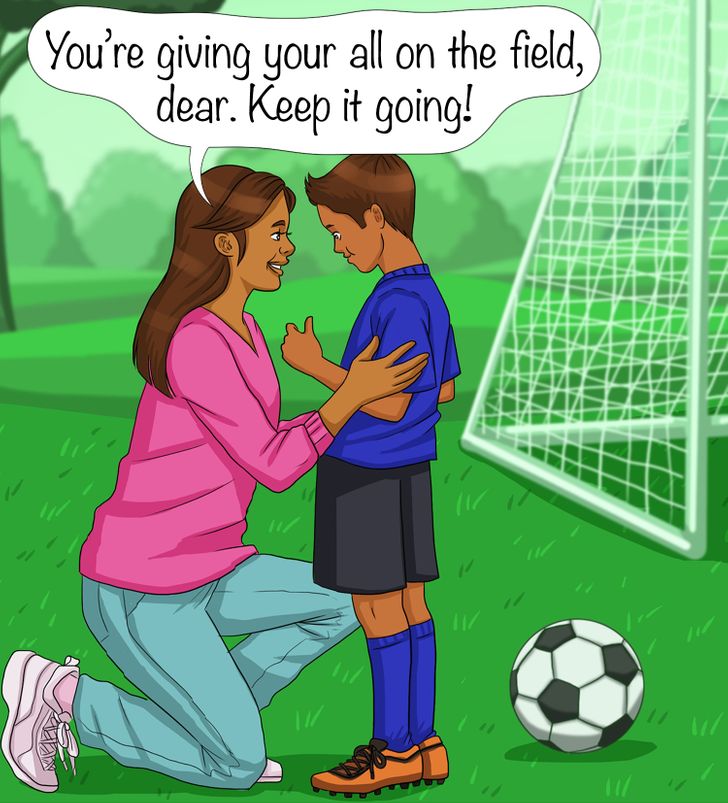10 Principles That Can Cause a Person to Remain Poor for the Rest of Their Life


Educating children is not always an easy task. It is necessary to understand how motivation works and use this knowledge as a tool — to know when learning arises after doing something for fun or pleasure and to know when it is convenient to reinforce certain attitudes with rewards that will be useful in personal development of little ones.
Bright Side would like to share a brief guide with readers on how motivation works and also some useful information for learning how to distinguish when rewarding children can be helpful.

It’s common to hear that in order to achieve our goals and dreams, having enough motivation or being able to find it is essential. And even though motivation is something natural that can derive simply from liking something, according to psychology, this is a process that starts being developed in the early years of life. It’s then that we all have specific experiences that create and nurture a healthy and balanced system of motives, which is key when it comes to achieving positive results in what we want. Keep this in mind when you’re thinking about motivating your kids to do something.

Now, if you want to understand better why children do or do not do certain things, it might come in handy to distinguish between the 2 different types of motivation. The first type is called intrinsic and it appears when something is done simply for fun or for pleasure. This is, for example, when a kid plays a video game that they find very entertaining. On the other hand, extrinsic motivation is a type of motivation that arises when something is done to obtain an external reward, hence the name. Something external is understood to be, for example, getting a good grade on an exam.

Much like adults, children also find motivation in obtaining rewards. We’re referring to that feeling that comes when you receive your paycheck or an extra bonus at the end of the month, and that can help people want to improve their performance, for example.
In psychology, this is often referred to as positive reinforcement because it favors the creation and/or increases the frequency with which a behavior occurs after you’ve received a specific type of reward. And while the use of positive reinforcement has been underestimated for a long time to avoid having to reward people all the time, it’s widely accepted as a useful way to motivate people to carry out tasks that they simply wouldn’t care about at first. Those tasks could be studying specific subjects, like math or a language, or even cleaning the house.

Just like you have different types of motivation, you also have different types of rewards. These can be either material, like a game or money, or intangible which would be, for example, a compliment that focuses more on the process instead of just on the result. In order to do that, you can stop focusing on the grade obtained on a particular test and instead praise the child for the effort they put into studying. Consider doing it sincerely and trying not to go too far with a compliment, since children can easily tell whether you’re lying or not.
According to a child and teenage psychiatrist, emphasizing positive behavior also helps build better self-esteem in children. In addition, receiving lots of praise is more likely to get children to cooperate in other situations as well, so it seems like a good tip to put into practice even if you’re not trying to motivate your child to do something specific.

Encourage healthier communication between you and your children by allowing them to have a saying when choosing what kind of reward they would like to receive. This can help maintain motivation and make the reward even more appealing than it already was before. However, as a parent, you should always express in very clear terms the instructions or the behavior you expect to receive back by encouraging extrinsic motivation.

Through a reward system you can keep children motivated when they have to study. However, for that to work, they need to know that there is something special to look forward to once the time for doing their activities is over. For example, imagine you came up with a system of points that they can accumulate after each study session to use for something special. You can make a table so that they know how many points they have gathered so far.
Try customizing it to your child’s age and interests. Also, try keeping an open mind about the rewards you’re offering. Maybe you can give your child the possibility of redeeming a certain amount of points for benefits such as going to bed later or even a small amount of money. With younger children, markers can be used instead of points.

When it comes to rewarding the little ones at home, don’t think you’ll have to spend a lot of money because that is not the case. You can try low-cost options that still achieve the objective of motivation. In fact, some of the cheapest solutions are often appreciated by kids. A concept that’s often used in school can also come in handy at home, for example, teachers often give certificates of recognition when children do the right thing or simply celebrate a specific achievement that sets a good example for the rest of the kids.
If you want to do this, you have to establish beforehand which actions and behaviors warrant certificates and provide key information on when they will be given, how, and to whom. If you want to create an even more special memory, you can organize an award ceremony, which is sure to delight the children.

Giving children incentives is a useful strategy, but you shouldn’t take things too far. Use it only when it’s really necessary. Children who already enjoy doing something on their own and who are suddenly rewarded may start doing what they were already motivated to do only with the expectation of receiving something in return. Remember that children have a natural curiosity and disposition to work toward an attainable goal, so in that, they might differ from most adults.

Rewards should be avoided when you want to put an end to your children’s misbehavior. In these cases, it is a good idea to connect with them to try to discover what the real reasons or motivations behind the negative action or habit are. It might be that they are suffering from anxiety or even that your child does not feel listened to. Therefore, it is not worth providing incentives, but rather finding a healthy and balanced solution.
Do you have any strategies that work to keep kids and teens motivated? Do you remember what motivated you the most as a kid? Share your stories with us.











